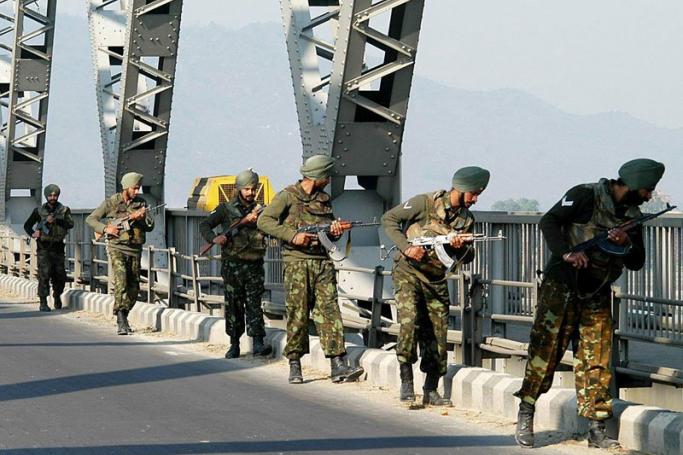The Government of India is trying to gauge the mood of neighbouring countries including Myanmar with the propaganda of launching an attack against the rebels in foreign soil, says United Liberation Front of Asom (ULFA) military wing chief Paresh Baruah.
He also said attacks and counter-attacks would continue in a “conflict zone”.
Talking to The Assam Tribune over the phone from an undisclosed location on June 14, Baruah claimed that they had not encountered any attack by the Indian Army in Myanmar.
He insisted the Kamatapur Liberation Organisation (KLO) chief Jiban Singha was safe.
Baruah said India was trying to figure out the mood of governments in neighbouring countries.
“It is apparent that the Government of India tried to gauge the mood of the Government of Myanmar before planning such an attack. But the Myanmar government made it clear that it is a sovereign country and would not allow any such attacks by the army of a different country,” Baruah added.
The ULFA leader said that after its failure to force Myanmar to bow down to “aggressive diplomacy”, India was now sending National Security Adviser Ajit Doval to Myanmar.
He said the possibility of India offering a huge economic package or some other benefits to Myanmar to persuade the government to take action against the rebels could not be ruled out.
Baruah said they were closely monitoring the situation and admitted that they would have to adopt a new strategy to overcome the situation if India managed to persuade Myanmar to take action against the rebels.
However, Baruah asserted that so far they have not faced any problem in Myanmar.
On India’s repeated requests to Myanmar to flush out the rebels, Baruah said the chairman of NSCN(K), SS Khaplang is a native of Myanmar and he cannot be flushed out from that country. He revealed that Khaplang, who is also the chairman of the newly formed platform of four militant groups of the northeast, had already signed a ceasefire pact with the Government of Myanmar.
Replying to a question on the alert sounded in the northeastern states by the Government of India about the possibility of militant attacks, Baruah said attacks and counter-attacks would continue in a “conflict zone”.
However, Barua asserted that the cadres of all the outfits of the new front had been directed to ensure that innocent civilians were not harmed.
When pointed out that in the past, innocents were killed in ULFA attacks, he said, “in the past some unwanted elements managed to get into the outfit. They surrendered after killing innocents and the government also pardoned them.”
Baruah also said that Indian government could bring an end to conflicts by holding sincere and meaningful talks on the political issues raised by the rebels.
You are viewing the old site.
Please update your bookmark to https://eng.mizzima.com.
Mizzima Weekly Magazine Issue...
14 December 2023
Spring Revolution Daily News f...
13 December 2023
New UK Burma sanctions welcome...
13 December 2023
Spring Revolution Daily News f...
12 December 2023
Spring Revolution Daily News f...
11 December 2023
Spring Revolution Daily News f...
08 December 2023
Spring Revolution Daily News f...
07 December 2023
Diaspora journalists increasin...
07 December 2023












